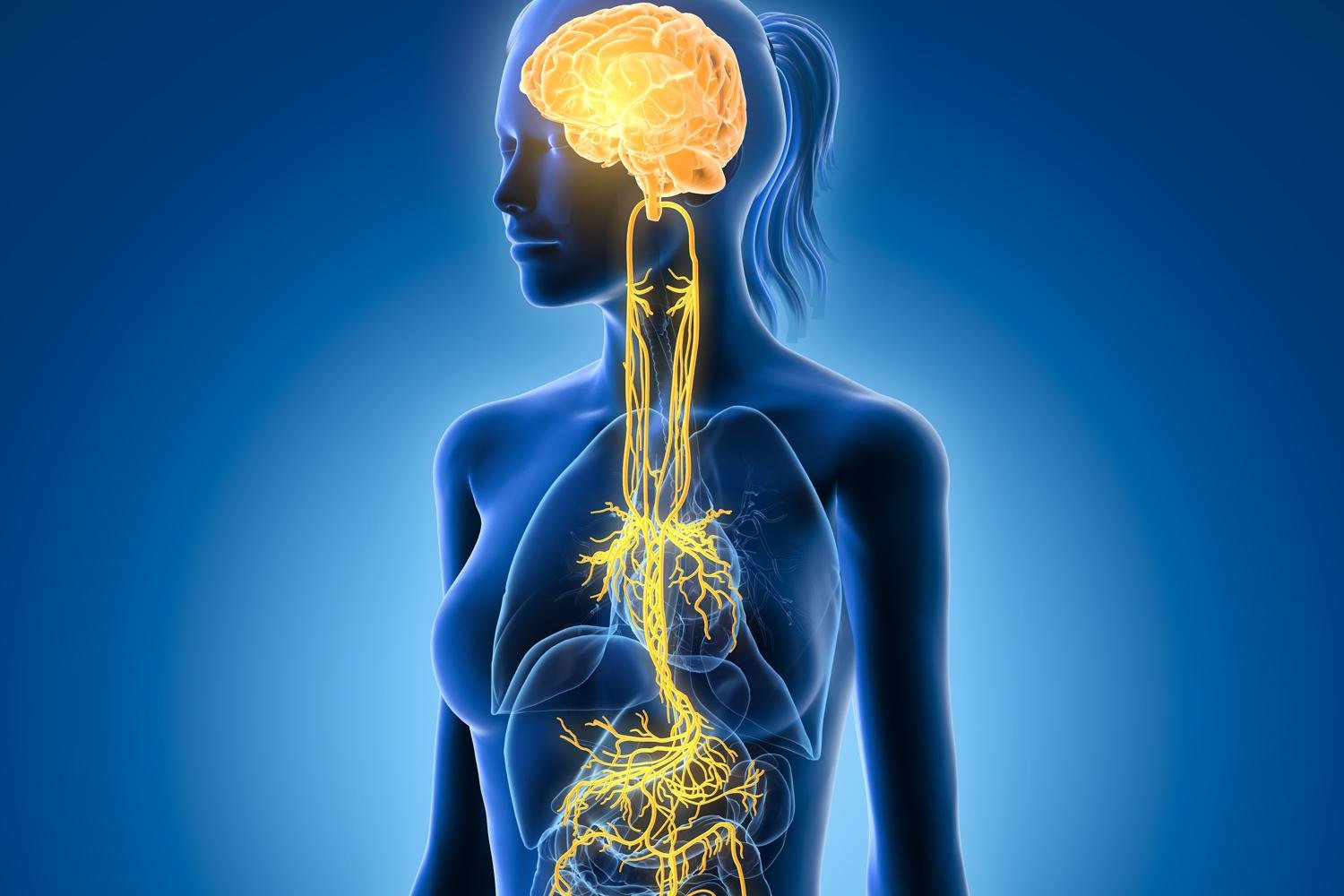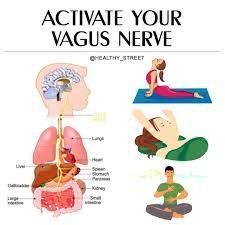Activate the Vagus Nerve for Stress Relief.
“According to mind-body experts, we can control our nervous system’s reactions to stress by toning the vagus nerve, one of the most complex neural highways within the human body. And yoga is one of the best ways to do it.” Yoga Journal.
Have you ever heard about the vagus nerve? In the last year, I’ve seen discussions about it everywhere and haven’t considered it since my Yoga Teacher’s Training in 1998. During my training, it was only referred to briefly in regard to the yoga postures that impacted it.
Now, I can’t read enough about it and want to share what I’ve learned about this incredibly powerful and ubiquitous nerve.
To understand the vagus nerve, you need to understand how our nervous system works.
The Autonomic Nervous System
The primary function of the autonomic nervous system (ANS) is homeostasis, which is the state of balance among all the body systems needed for the body to survive and function correctly. The ANS controls specific body processes, such as digestion, metabolism, urination, defecation, blood pressure, sexual response, body temperature, heartbeat, breathing rate and fluid balance. It’s called autonomic because it works autonomously, without a person’s conscious effort.
The Autonomic Nervous System has Two Parts:
The Sympathetic Nervous System. It is located near the thoracic and lumbar regions in the spinal cord. Its primary function is to stimulate the body’s fight-or-flight response. It does this by regulating the heart rate, rate of respiration, pupillary response and more.
The Parasympathetic Nervous System. It is located in between the spinal cord and the medulla. It primarily stimulates the body’s “rest and digest” and “feed and breed” responses.
We need both systems. If you are being chased by a bear you want your sympathetic system to give you a good dose of adrenaline so you can run like a sprinter. Your parasympathetic system helps you regulate your emotions and bring your body to a state of calm.
Even the calmest individuals will experience daily stress because we are regularly bombarded with noise, traffic, and disturbing world events. This can put our nervous system into a state of high alertness, and learning how to activate the vagus nerve can help.
What is the Vagus Nerve?
The vagus (wanderer in Latin) nerve is part of the parasympathetic nervous system and the tenth cranial nerve. It originates in the brain stem and travels through the face, neck, lungs, heart, diaphragm, and abdomen, including the stomach, spleen, intestines, colon, liver, and kidneys. It is connected to mood, immune response, digestion and heart rate.
A symphony conductor (vagus nerve) directs how fast or slow, loud or quiet your nervous system will be at any given time. Source
If you want to learn more, check out this article on Polyvagal Theory.
How to Stimulate your Vagus Nerve to Turn ON Your OFF Switch
1. Breathing. This is one of the easiest ways to stimulate your vagus nerve. Ensure you are breathing gently, slowly and deeply through your nose. On your inhalations, your abdomen, ribcage and chest expand; you relax all three on your exhales.
2. Singing or humming activates this nerve.
3. Neck stretches-head circles and trap stretch.
4. Yoga postures- cat/cow stretches, back bends including sphinx, cobra, bow or boat, seated or standing forward bends, twists and savasana.
5. Restorative Yoga. This practice cultivates conscious relaxation and gives us control over the parasympathetic nervous system by slowing our reactive response.
6. Meditation.
7. There are many vagus nerve activation videos available; I like this one: Vagus Nerve Activation Video
Stimulation of the vagus nerve is one of the reasons you feel so energized and grounded after a yoga class.
Nourish your nervous system by taking care of your vagus nerve, and you will experience more resilience, clarity, calm and overall better health.
Be well.
Anita
Resources
1. Sympathetic and Parasympathetic Nervous Systems
3. Yoga Journal
DISCLAIMER; The information provided on County Yoga Loft’s website blog is for general health care informational purposes only. All information on the site is provided in good faith. However, it should not replace consultation or advice from a physician and/or other healthcare practitioners. The use or reliance of any information contained on this site is solely at your own risk.





